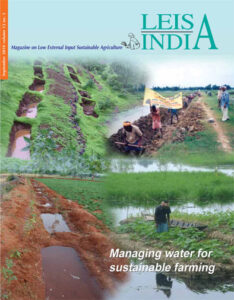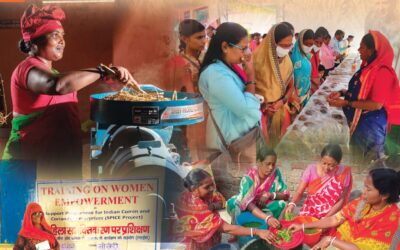
There is an increasing recognition and concern that water as a scarce and vital resource needs to be carefully conserved, judiciously utilized and effectively managed. In agriculture, where water use is the highest, it is linked to food security, economic well being as well as ecological stability. Improper management of this resource also erodes the other natural resources such as soil and biodiversity. While it becomes the limiting factor in several contexts, in certain other situations, communities have to manage nature’s wrath in terms of recurring floods. There are several specific traditional as well as local alternatives and communities of practice. Some of them are included in this issue.
Oases of productivity
A case of small scale watershed development
K Raghavendra Rao
The role of a local committee in changing times
Irrigation management in the Himalayas
Nilhari Neupane and Gopal Datt Bhatta
Learning from traditional social institutions
STS Reddy, NV Hiremath, Raja Mohammad and Ashok Alur
Communities revive traditional water springs
Rakesh Prasad
Land grabs are cheap deals for rich countries
Interview with Anuradha Mittal
Living with floods
Adaptive strategies of local communities
GEAG
Communities cope with flooding situation with Gaota
Sukanta Sen and Fahmid Al Zaid
Running water uphill with a ram pump
Auke Idzenga
Modern Holland: built on centuries-old system
Frank van Schoubroeck
Integrated small scale water resources management
in Maharashtra
R.C.Kote and S.M. Wagle
The Narayana Reddy Column
Humus – key to soil water conservation
Farming without pumps
Shree Padre







